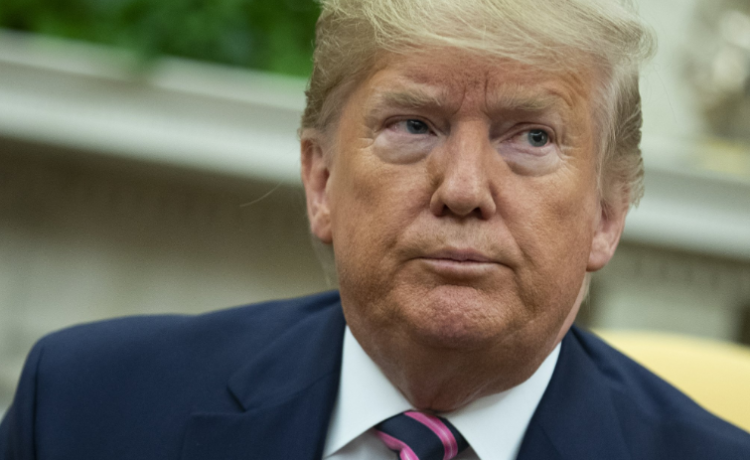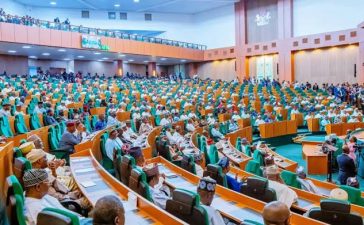The United States government has raised significant concerns over Nigeria’s decision to impose a comprehensive ban on the importation of key agricultural and pharmaceutical goods, calling for the Nigerian government to reconsider its stance.
The move, which has far-reaching consequences for both economic and humanitarian considerations, was announced as part of Nigeria’s broader strategy to protect local industries and encourage domestic production.
The U.S. Department of State issued a statement on Tuesday, cautioning that the import ban could lead to inflationary pressures, reduced access to essential goods, and heightened food insecurity, particularly among Nigeria’s vulnerable populations.
The Department also highlighted the potential strain on the country’s healthcare system, which relies on imported pharmaceutical products for the treatment of common ailments and diseases.
“We understand that Nigeria’s government aims to strengthen local industries, but we must emphasize that the impacts of such a ban could disproportionately affect the Nigerian people, particularly the poor,” said a spokesperson for the U.S. Department of State.
“Our concern is that this move may disrupt the supply chain for critical agricultural products and medications, thereby exacerbating the country’s ongoing challenges with food insecurity and public health crises.”
The Ban’s Implications
The Nigerian government’s decision to ban imports of agricultural goods, including staple crops and food products, is intended to protect and incentivize local farmers.
Additionally, pharmaceutical imports, which include life-saving medications and vaccines, are also restricted under the new policy. The government has cited the need to stimulate the growth of local agriculture and pharmaceutical manufacturing as key reasons behind the policy shift.
However, the U.S. has warned that while these goals may have long-term benefits, the short-term consequences could be severe.
Nigeria, which has faced significant challenges in agricultural productivity and manufacturing capacity, may struggle to meet the increased demand for food and pharmaceuticals through local production alone. Experts suggest that the ban could lead to higher prices for basic goods, potentially placing essential commodities out of reach for many Nigerians.
“The unintended consequences of this policy could further worsen Nigeria’s already precarious situation,” stated the U.S. spokesperson. “Inflation is rising, food prices are soaring, and healthcare access is becoming more strained. The import restrictions may only exacerbate these issues, particularly in rural areas where access to affordable food and medical care is already limited.”
Impact on Public Health and Food Security
The agricultural sector in Nigeria has long struggled with issues such as inconsistent crop yields, inadequate infrastructure, and limited access to modern farming technology.
While the government has made efforts to support local farmers, it remains highly dependent on imports to meet the country’s food needs, especially for staple items such as rice, wheat, and palm oil. With the new import restrictions in place, analysts warn that food shortages could become a more frequent occurrence, with potentially devastating effects on Nigeria’s food security.
In the health sector, Nigeria relies heavily on imported medicines, vaccines, and medical supplies to address a range of health concerns, from common diseases to more complex medical conditions.
The restrictions on pharmaceutical imports could disrupt the availability of essential medications, thereby increasing the burden on the already overextended healthcare system. The U.S. government has expressed concern that these disruptions could hinder efforts to combat diseases like malaria, HIV, and tuberculosis, which disproportionately affect poorer populations.
Nigeria’s Local Industry Push
On the other hand, Nigerian officials argue that the import ban is a necessary step in the country’s economic development. The government hopes that by limiting the influx of foreign goods, local industries, especially in agriculture and pharmaceuticals, will be incentivized to increase their output and become more self-sufficient.
The move is in line with President Bola Tinubu’s broader economic strategy, which includes initiatives aimed at diversifying the economy away from oil dependence and boosting industrial production.
Nigeria’s Ministry of Trade and Investment has defended the policy, stating that the government is committed to creating an enabling environment for local industries to thrive. The Ministry has also emphasized that the policy is designed to support farmers and pharmaceutical manufacturers, creating jobs and stimulating economic growth.
However, critics argue that Nigeria’s local production capabilities may not be able to meet the demand for key agricultural and pharmaceutical products in the short term. Industry experts have pointed out that despite the country’s rich natural resources, inadequate infrastructure, outdated farming practices, and regulatory hurdles could hamper the growth of local industries.
Growing Tensions in US-Nigeria Trade Relations
This new import ban comes at a time of growing tension between the United States and Nigeria over trade issues. The U.S. has long been one of Nigeria’s largest trading partners, and any policies that disrupt bilateral trade are closely scrutinized. In addition to the import restrictions, Nigeria’s broader trade policies, including tariffs and regulations, have faced criticism from American businesses operating in the country.
The U.S. government has urged Nigeria to carefully weigh the potential consequences of these import restrictions, which it views as a threat to both Nigerian consumers and international trade relations.
The State Department has also recommended that Nigeria engage in a more consultative approach with stakeholders, including industry leaders, civil society organizations, and international trade partners, to find solutions that balance economic development with the needs of the population.
The Road Ahead
As Nigeria’s government continues to implement and refine its import restrictions, it remains to be seen whether these policies will achieve their intended goals of boosting local production and economic self-sufficiency.
While the U.S. has raised concerns, the ultimate success of the policy will depend on Nigeria’s ability to develop its domestic industries while ensuring that the most vulnerable Nigerians are not left behind.
As of now, Nigerian officials have not responded to the U.S. government’s criticism, but observers believe that further dialogue between the two countries will be necessary to address the concerns raised by the import ban and its impact on Nigeria’s long-term economic stability.







